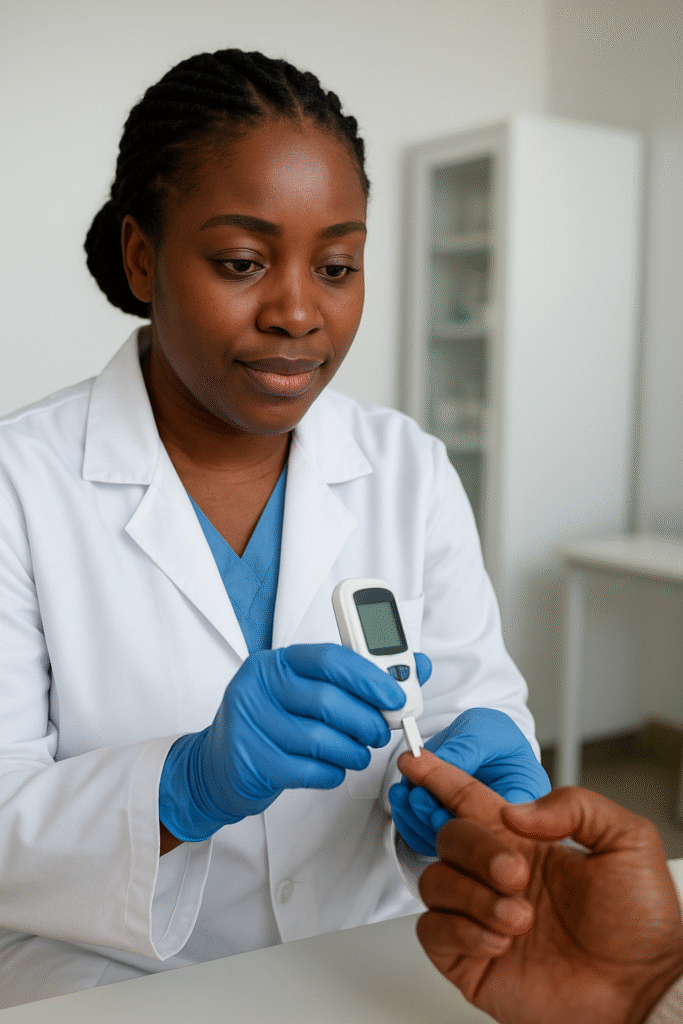
Here’s why hospitals often require it 👇
🩸 1. To check for diabetes or prediabetes
Many people have high blood sugar (diabetes) without knowing it. A simple sugar test helps doctors detect it early — even before symptoms appear.
Early detection prevents serious complications like stroke, kidney failure, or poor wound healing.
⚕️ 2. To assess your overall health status
Even if you came for another issue (like fever, surgery, or pain), your blood sugar level affects your body’s response to treatment.
For example:
- High sugar can delay recovery or cause infection after surgery.
- Low sugar can make you weak, dizzy, or confused.
🏥 3. To guide medication and treatment
If your sugar is high, doctors might adjust your drugs, IV fluids, or diet to keep you safe during your stay.
For example, a diabetic patient shouldn’t receive certain glucose-containing drips.
⏱️ 4. It’s a standard screening in most hospitals
Just like checking blood pressure or temperature, sugar testing is a routine vital check — especially for adults or anyone above 30.
⚠️ 5. Some illnesses temporarily raise blood sugar
Even stress, infections, or certain drugs can cause temporary high sugar, so doctors test to monitor your body’s reaction and avoid complications.
In summary:
👉 The sugar test helps the hospital ensure your safety, guide your treatment, and detect hidden health issues that could affect your care.
